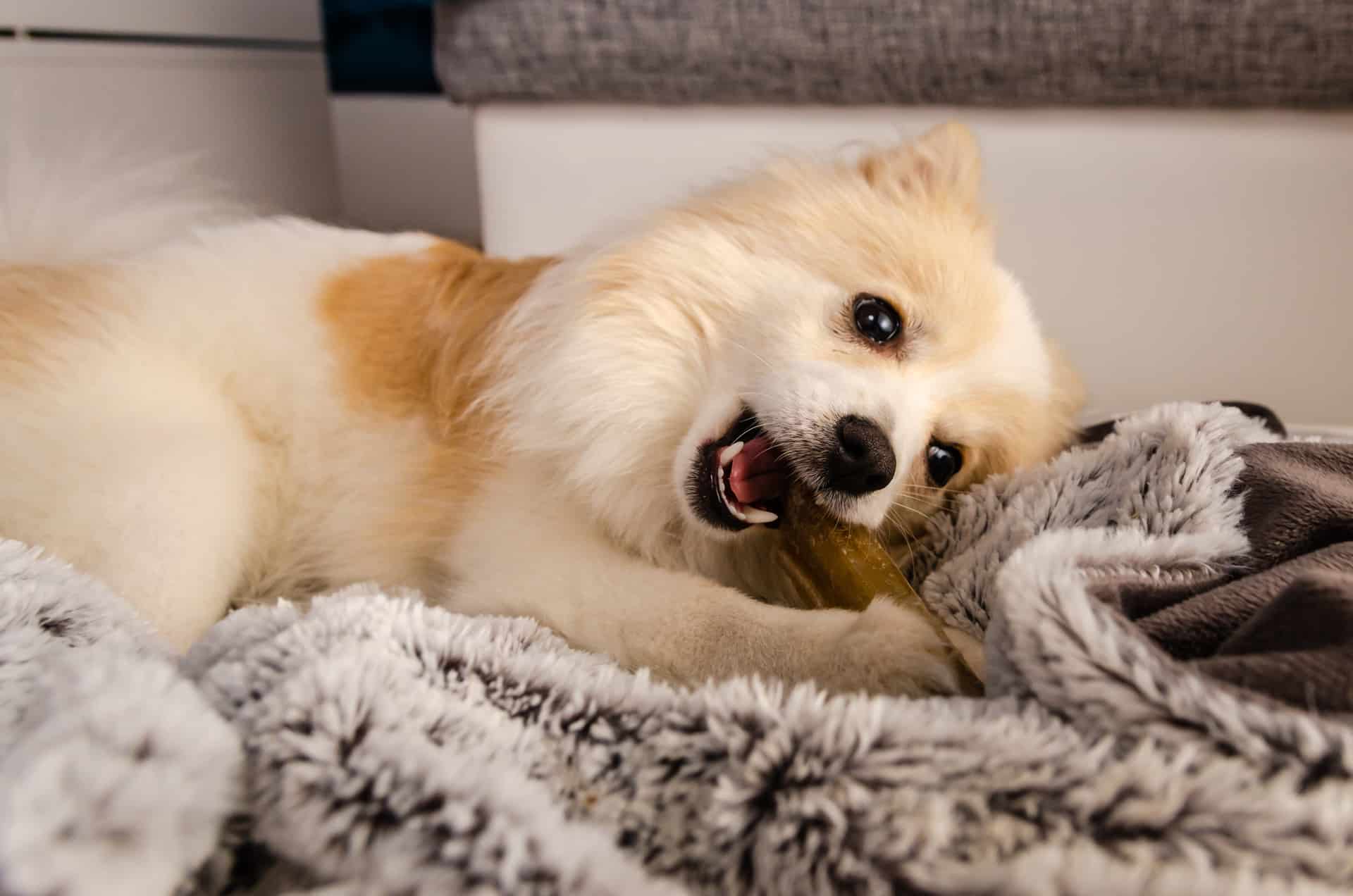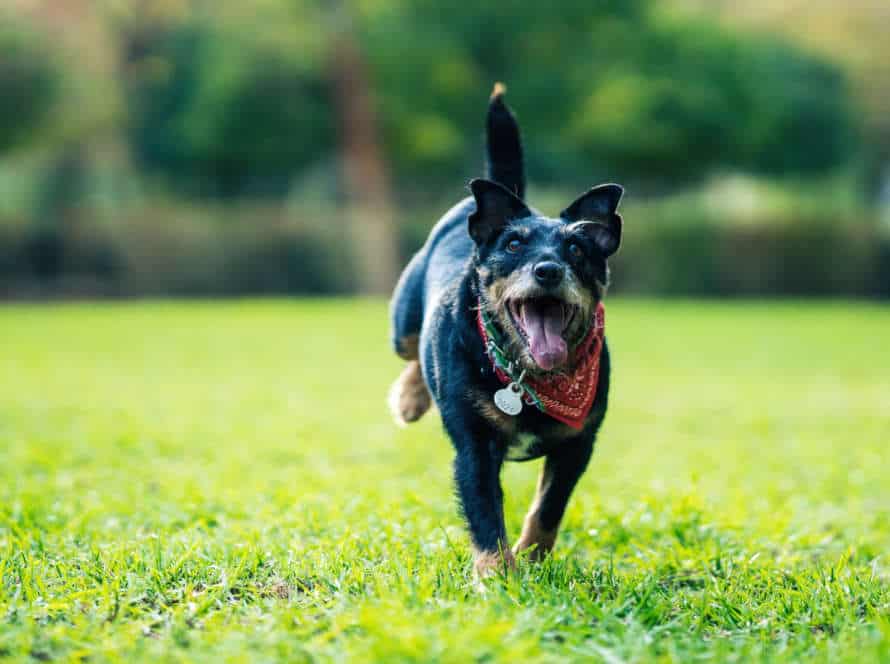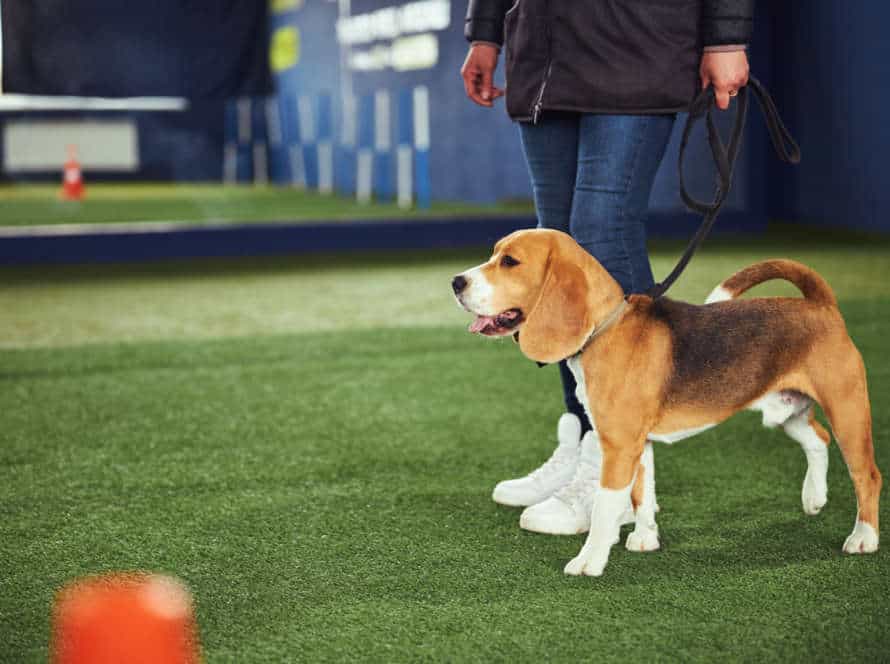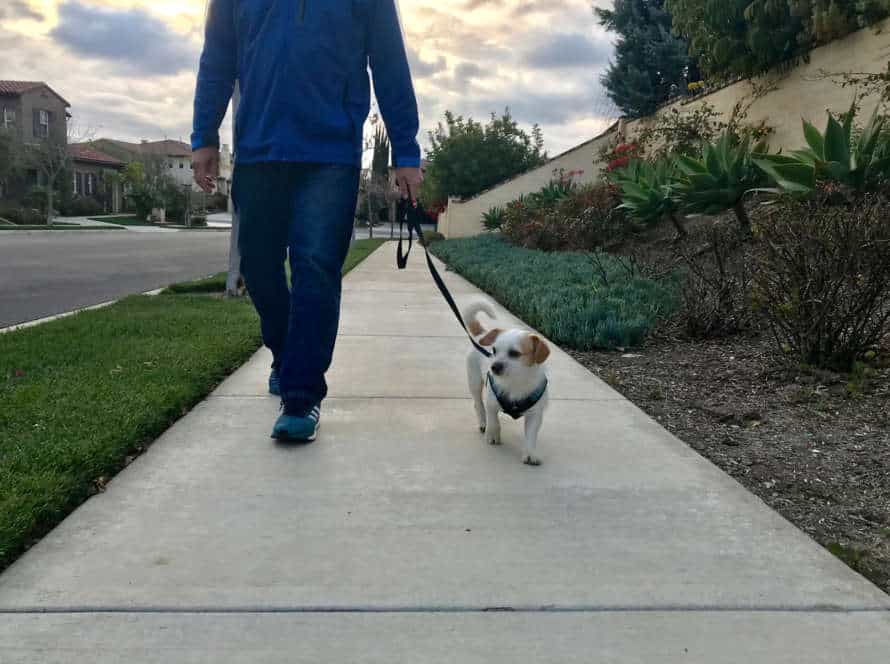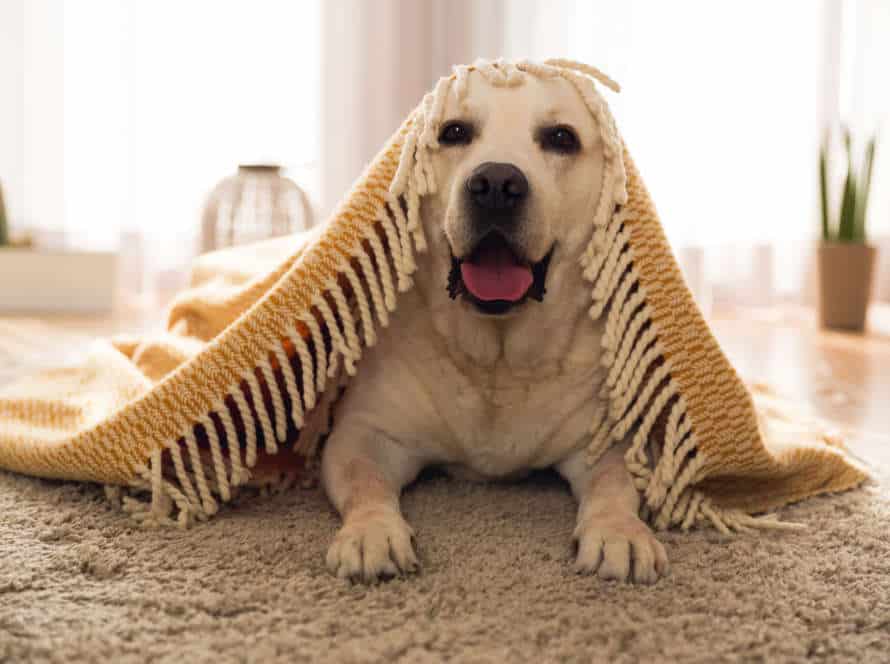The Role of Teething in Puppy Biting and How to Help Your Puppy Cope
Teething is an important part of puppy development. Pups use biting and chewing to learn about their world and ease their teething pain. Here’s some tips to help you out:
- Give ’em chew toys. This’ll help soothe their gums.
- Freeze toys or get wet washcloths. These can give extra relief.
- Play with your pup and give lots of attention. This distracts ’em and reduces biting.
- Train ’em consistently. Teach ’em what’s okay to chew on.
Patience and consistency are key. With that, your pup will get through their teething phase and learn good chewing habits.
Understanding Your Puppy’s Teething Process
It’s essential to understand your pup’s teething process! This varies with breed, age, and size. Your pup’s gums may be sore as their baby teeth come in. To ease the pain, they may bite or mouth things. As an owner, there are ways to help your pup during this period.
What Happens During the Puppy Teething Stage?
Puppy teething is a normal part of growing up. It usually begins when pups are 3-4 months old and continues until they’re 6-8 months old. During teething, puppies feel discomfort and have strong urges to chew. This can lead to destructive behavior and biting.
To help your pup cope:
- Give them plenty of chew toys.
- Freeze some toys to ease their pain.
- Offer them ice cubes to chew on.
- Train them with positive reinforcement techniques to stop biting.
- Be patient and consistent in training. Remember, this is a natural part of their development.
When Does Teething Start and End?
Teething is an important part of a puppy’s growth. It begins around 3-4 weeks old and lasts until they are 6-8 months old. During this time, the puppy may feel discomfort, causing them to bite or chew excessively.
As a pet parent, you can help by offering chew toys. This will ease the pain and help create healthy chewing habits. Train your puppy to control their biting with positive reinforcement. Doing this will form a foundation for a well-behaved adult dog.
When choosing chew toys, make sure they are strong and safe. Avoid giving toys that could easily break or cause choking.
Different Types of Puppy Teeth
Comprehending the different kinds of puppy teeth is important for puppy owners. They need to understand the teething process, when the teeth will fall out, and dental care for their pup.
Four types of teeth exist in puppies:
- Incisors: 8 of them. 4 on the top jaw, 4 on the bottom. Thin and sharp for biting and grooming.
- Canines: 4 of them. 2 on top, 2 on bottom. Sharp and pointed for grabbing and holding food & toys.
- Premolars: 8 of them. 2 on top, 2 on bottom. They have cusps for tearing and shredding.
- Molars: 12 of them. 3 on top, 3 on bottom. A flat surface for grinding and crushing food.
Knowing the purpose of each type of tooth can help with care during the teething process. This includes teething toys, correct nutrition, and dental hygiene.
Pro Tip: Introduce teeth brushing to your puppy gradually. This will prevent dental issues later in life.
The Relationship Between Teething and Biting
Puppies teething can be painful and uncomfortable. This may lead them to bite and chew on things like furniture and shoes, and even people! It’s vital owners understand the connection between teething and biting. Here we’ll learn about it, plus how to help your puppy cope with teething in a good way.
Why Do Puppies Bite During Teething?
Puppies start teething at 3-4 months and can keep going until 8 months. Chewing and biting help soothe sore gums and teeth while they grow. To help with teething, puppies may chew anything they can get their teeth on – like furniture, shoes, and even people’s hands/fingers.
To cope better, give them plenty of appropriate chew toys and treats. Redirect biting behavior with positive reinforcement training techniques. Don’t forget to get regular vet dental check-ups for your puppy’s oral health.
How to Recognize Teething-Related Biting
Teething is a normal phase puppies go through. They may bite during this time. Here’s how to recognize it and help your puppy cope:
Signs of teething-related biting include:
- Excessive chewing or nibbling
- Swollen and red gums
- No appetite or thirst
- Irritability
Give your puppy chew toys such as a hard rubber toy with treats or frozen washcloth. Supervise your puppy and lead their biting to the toys.
Train and reward your puppy for good behavior. Keep in mind that this phase will pass. With patience and training, your puppy will outgrow the biting.
Common Misunderstandings About Puppy Teething
Puppy teething isn’t the only cause of biting. Puppies bite for exploring, playing and seeking attention.
So, how can you help your pup?
- Give them teething chew toys to soothe their gums and direct the biting.
- Train ‘bite inhibition’ with moderate reactions and praise when they let go.
- Use positive reinforcement to teach ‘sit’ and ‘stay’ commands to channel energy.
To summarize, teething and biting is natural and can be addressed with patience and training.
Helping Your Puppy Through the Teething Stage
Teething is essential for puppies. People often forget about it though! It can result in biting, chewing and anxious behavior. Thankfully, there are things you can do to help your pup cope. Here’s what you need to know:
Pain Relief for Teething Puppies
Teething for puppies is a painful process – and it can be a challenge for pet owners. Here are some good ways to ease the teething pain for your pup:
- Freeze a washcloth or dog toy: Soak a washcloth in water and put it in the freezer. Then give to your pup to chew on. You can also freeze a toy and give it to them. The cold will soothe their gums.
- Give chew toys: Toys made of rubber or nylon can really help with sore teeth and gums. Toys made for teething puppies can help clean their teeth and massage gums.
- Soft treats: Soft treats like yoghurt can be frozen and given to your pup to ease pain.
- Distraction: Play with your puppy or take them for a walk. This will shift their focus away from pain.
- Supervise: Always watch your pup when they chew a toy or treat to make sure they don’t choke.
Pro Tip: Patience and love are key to helping your puppy through teething.
Soothing Your Puppy’s Sore Gums
Puppy teething can be tough on your pup. But there are ways to ease the pain. Here’s what you can do:
- Freeze a damp washcloth or towel for your pup to chew on. The coldness will help numb their gums.
- Soak their regular chew toys in water and freeze them too.
- Offer cold, soft foods like pureed pumpkin or yogurt as a treat. Avoid hard, crunchy treats that may hurt their teeth and gums.
- Be patient and understanding. Your pup may be more prone to chewing and biting. Set clear boundaries and redirect their attention to appropriate chew toys.
Puppy teething is only temporary. With proper care, your furry friend will make it through just fine.
Appropriate Chewing Toys for Teething Puppies
Teething is an important part of a pup’s growth, but can lead to chewing things that you don’t want them to. Providing toys for your pup to chew on can help them feel better and keep your stuff safe.
Here are some good toys for teething pups:
- Rubber chew toys: Durable and able to take the strong chewing of a teething pup.
- Rope toys: Perfect for teething as they help loosen and remove baby teeth.
- Frozen chew toys: Soak and freeze the toys to give relief to your pup’s gums and keep them occupied.
Always watch your pup while they are chewing and replace any toys that are worn out. Pro tip: Give different textures and shapes to keep your pup interested.
Managing Puppy Biting During Teething
Puppy teething is painful! This can make puppies bite. As an owner, it’s important to understand why this happens. Plus, how to help your puppy manage the biting and cope with the pain. Here are some tips to manage the biting during teething:
Redirecting Your Puppy’s Biting
Redirecting your puppy’s biting is important for managing teething. Teething is natural for puppies, but it can lead to biting and chewing. Here are tips to redirect your puppy’s biting:
- Offer chew toys. Give safe and durable chew toys to satisfy their need to chew.
- Use positive reinforcement. Praise and reward your pup when they play with chew toys instead of biting or chewing furniture.
- Avoid physical punishment. Punishing can make your pup fear and become aggressive.
- Be consistent. Use same redirection techniques each time puppy bites. This helps establish a routine.
With patience and consistency, you can help your puppy cope with teething and redirect their biting behavior positively.
Teaching Bite Inhibition to Your Puppy
Training your pup in bite inhibition is essential for controlling their biting habits, especially while teething. Here are some tips to assist you:
- Socialization: Introduce your pup to many people, places, and other pets to show them proper social behavior, like controlling their biting.
- Positive reinforcement: Praise your pup for good habits such as playing gently and not biting or gnawing on the wrong things.
- Training techniques: To stop biting, use redirection and voice commands like “no bite” or “gentle” to train them how to play correctly.
- Consistency: Keep up with your training and rewards to help your pup learn the correct behavior.
- Patience: Remember that teaching bite inhibition takes time and patience, so stay consistent and keep working with your pup.
Avoiding Reinforcement of Unwanted Biting Behaviors
Teething is a natural thing for puppies which can lead to them biting. As an owner, it’s key to manage this behaviour so as not to encourage it.
Here are some tips to help your pup during teething and control the biting:
- Offer them teething toys which are safe and will not hurt them.
- Direct their biting towards the toys and reward them when they chew on it.
- Use positive reinforcement such as clicker training and treats to train them to stop biting your skin or clothes.
- Do not use physical punishment or violence to stop biting, as this can lead to aggressive behaviour and harm your relationship with your pup.
- Be consistent when managing the biting and be patient in reinforcing good behaviour.
Common Problems With Teething Puppies and Solutions
Puppies often suffer from teething. It can make them bite or chew anything. As an owner, you should know the signs. We’ll discuss this issue and provide some solutions. Help your pup get through it!
Destructive Chewing
Teething puppies often have a problem with destructive chewing. Chewing can help ease the pain and build their jaw muscles. Here are some tips to help them out:
- Offer safe chew toys. Hard rubber or nylon toys can reduce the discomfort and keep them away from valuable or dangerous items.
- Put chew toys in the freezer. Wet and freeze them to add soothing relief.
- Provide suitable things to chew on. Soft chews, bully sticks, and rawhide bones are good options.
- Don’t punish them. Punishing them will only cause fear and anxiety.
- Supervise them when necessary. During teething, it’s best to keep an eye on them to stop destructive chewing.
These strategies can help your pup get through teething and stop destructive chewing.
Lack of Appetite
Teething puppies often have problems eating. This is due to the pain and swelling caused by their teething. Here are some options to help:
- Give them soft food, like boiled chicken, rice, and mashed veggies.
- Try teething toys that have been frozen – this relieves the pain.
- Rub their gums with a cool, wet cloth or your finger.
- Ensure your puppy is drinking enough water.
- Monitor their weight. If no appetite for a few days, take them to the vet.
Teething can be tough on puppies. With extra love and care, you can help them through it.
Excessive Drooling or Whining
Excessive drooling and whining? Teething puppies suffer! It’s a painful and uncomfortable experience – but there are solutions to help. Here are a few tips:
- Provide teething toys designed for puppies. These can soothe gums and stop chewing on household items.
- Give frozen or cold toys to numb the pain and reduce swelling.
- Gently massage their gums with your fingers or a clean cloth. This can give relief and stimulate blood flow.
- Train your puppy not to bite. Positive reinforcement rewards good behavior and discourages bad behavior.
With patience and training, you can help your puppy get through teething safely and comfortably.
Conclusion and Final Thoughts
To sum it up, teething is a regular and vital part of puppy growth. But it can lead to too much biting and chewing. As pet owners, it’s our job to help our puppies get through this stage, while teaching them restraint when it comes to biting.
Tips to remember:
- Give your pup plenty of chew toys to take away their discomfort and boredom, while redirecting their biting.
- Don’t use physical punishment or negative reinforcement – it can lead to fear and aggression in the long run.
- Be consistent with training your pup on acceptable biting behaviour.
With patience, love, and guidance, you can help your puppy sail through the teething stage and become a well-mannered adult dog.
Frequently Asked Questions
Q: How does teething affect my puppy’s biting behavior?
A: Teething can cause discomfort and pain in puppies, leading to a natural urge to chew and bite in order to alleviate the discomfort. This can result in increased biting behavior during the teething phase.
Q: When do puppies typically start teething?
A: Puppies usually begin teething around 3-4 months of age and it can last up to 8 months old.
Q: How can I help my puppy cope with teething?
A: Providing your puppy with safe and appropriate chew toys can help alleviate the discomfort of teething. Avoid giving your puppy items such as shoes or furniture to chew on, as it will only encourage bad behavior.
Q: Is puppy biting normal during teething?
A: Yes, it is normal for puppies to bite and chew more during their teething phase. It is important to redirect their biting towards appropriate chew toys.
Q: What are some signs that my puppy is teething?
A: Some signs that your puppy may be teething include excessive biting and chewing, drooling, and a loss of appetite. You may also notice some blood on their chew toys or in their mouth.
Q: How long does the teething phase last?
A: The teething phase can last up to 8 months old, but it is important to remember that each puppy is different and may experience teething differently.

